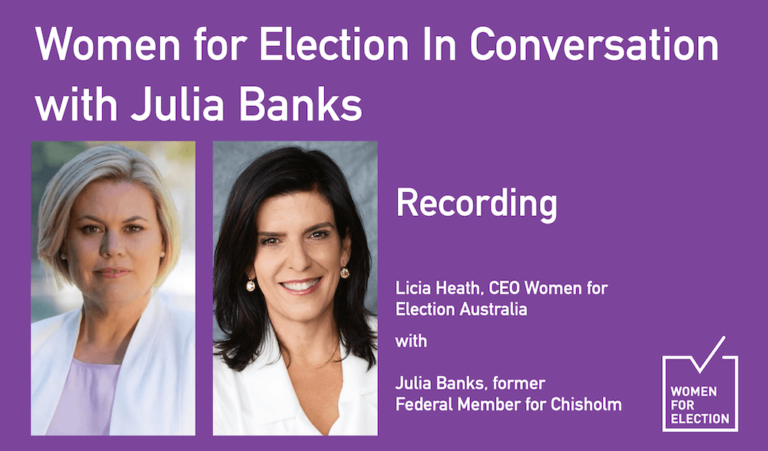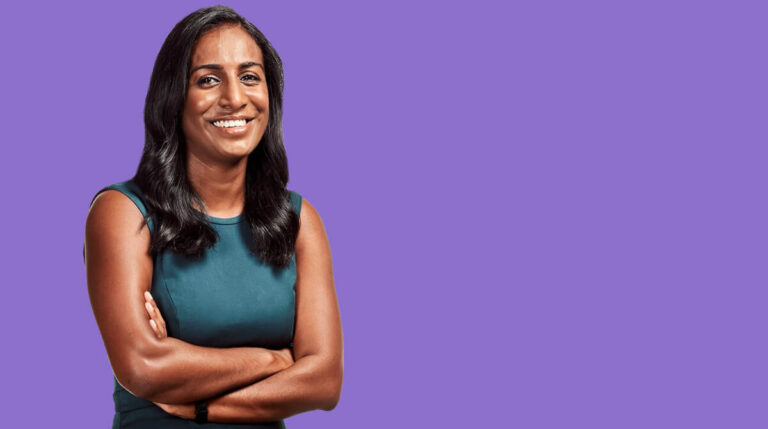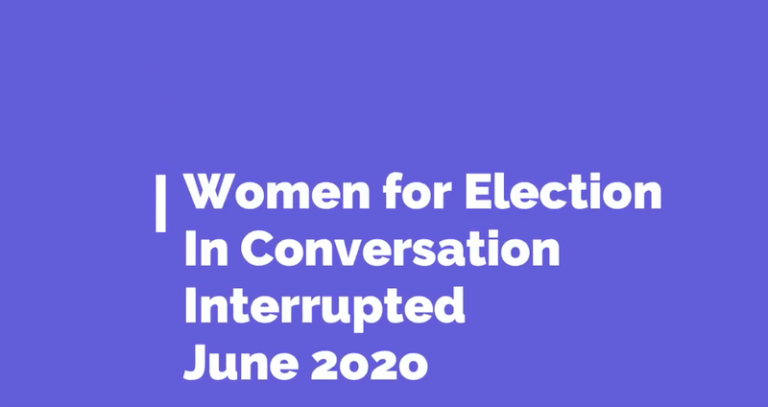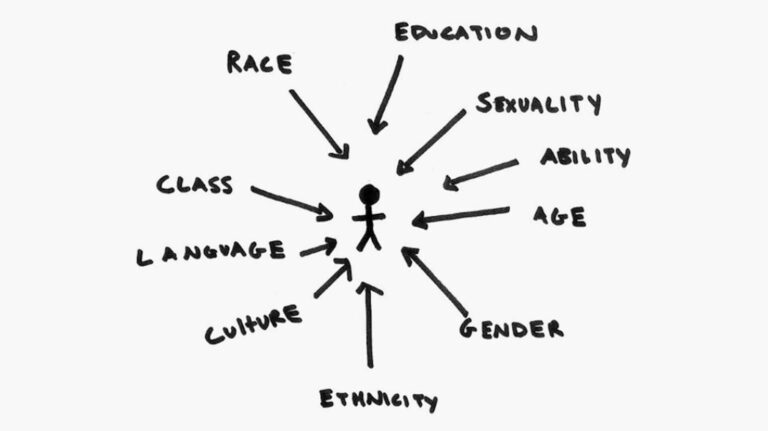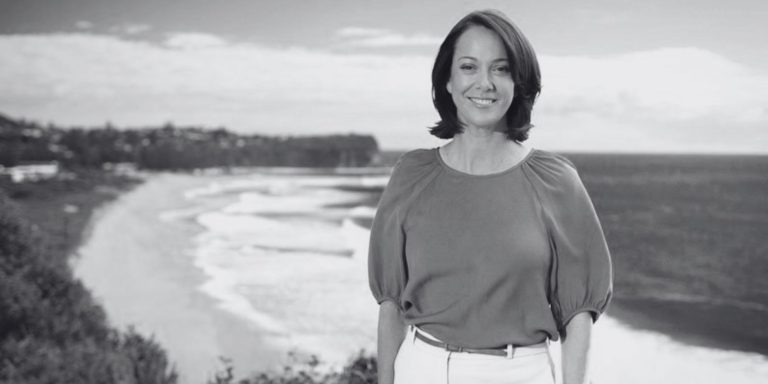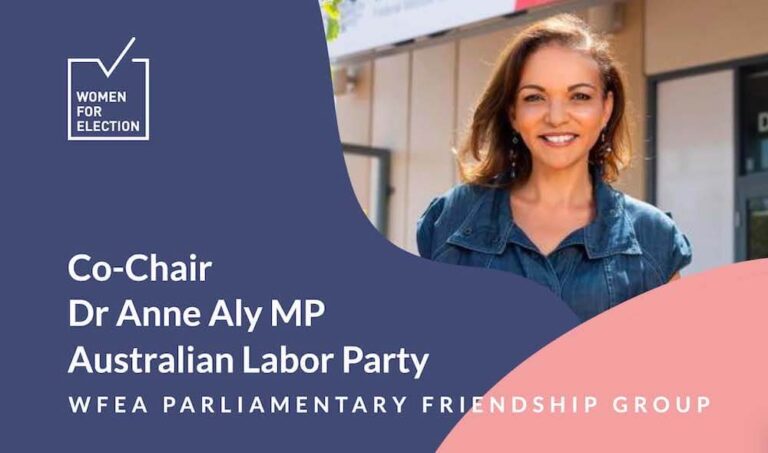Councillor Emily Wilding ‘In Conversation’
Our June ‘In Conversation’ event with Councillor Emily Wilding was fascinating and one of our best yet!
Emily was motivated to run as Councillor for the Town of Bassendean in Western Australia, in part, by the lack of representation of people like her at any level of Australian politics. As a result, she is one of only a handful of transgender elected representatives in Australia.
Elected in October 2021, Emily was inspired to run for her local council after seeing the benefits to community that local, people-focused governance can bring. Emily was a youth and community worker with a passion for helping people to navigate disadvantage, as well as addressing the systems that create it. A strong belief in equity and the importance of advocacy guides and underpins the work she undertakes.
For Emily, a big part of feeling like she could run for local council was seeing American trans candidate Danica Roem, who ran and was elected in the 2017 Virginia elections. Danica is the first out transgender person to be elected to the Virginia General Assembly, and in January 2018 became the first to both be elected and serve while openly transgender in any U.S. state legislature.
Emily felt like “Danica’s gender identity was almost irrelevant.” It proved to Emily “how gender identity does not have to be a barrier to running for political office.”
Emily spoke of the importance of representation of trans people in politics here in Australia. She noted that there are no openly trans politicians at the federal or state level. At the local government level, there was someone in Kalgoorlie 30 years ago! “I have no doubt that there are other people who are not open about their trans status” in politics in Australia, she said.
Emily asked “where is the visibility in the political sense? The Greens are the only party that put forward people from that demographic, outside of that there is very little representation.” Women for Election note that Fiona Patten’s Reason Party also recently supported Hannah Maher to run in the Federal election as one of their NSW Senate candidates, alongside WFE alumna Jane Caro.
Emily spoke about being a trans politician as a “double-edged sword.” She claimed that “when you are open… and there is negative political rhetoric around who you are as a person and your background and your demographic, putting yourself out there as a representation of your demographic is a risky thing.”
Emily points out that “many trans people keep a low profile for a sense of safety, as they don’t want to draw attention to themselves due to possible negative and unwarranted backlash.”
Emily believes that having a different perspective than people who usually go into local government, creates a more nuanced understanding and response to underlying community issues. Emily’s youth combined with her community activist background, “allows for a younger perspective and a real focus on access and inclusion.” Emily’s attention in the coming months will be focused on issues around homelessness in her area.
Even though Emily has only been elected for 8 months she has already been able to achieve a tangible win for her community. Emily has been able to pass a motion to fund and develop a project for outreach youth services in the outer suburbs of Bassendean. “The council will actually go out to where young people are and engage them there.”
We asked Emily how we as a community can do better to encourage more trans women and non-binary folk to consider seeing themselves as future political leaders? Emily replied with some very insightful and useful suggestions:
Calling out the negative rhetoric, which is not acceptable and not appropriate.
For example, during the Federal Election, Emily felt like “trans people were used as a political football, so trans women don’t even consider becoming one of the players.” Emily believes the outcome of that election shows us that Australians did reject a lot of those ideas, which reassures her.
Do more to support trans and non-binary people to run for office.
Emily suggests that “if you don’t see yourself represented, it doesn’t cross your mind that it is a possibility.” She noted that “there is usually a sea of white men and that makes me think that I don’t belong here.”
It wasn’t until she saw the rainbow flag raised at her local council, that she thought “it might be possible for me to run for local council.”
Political parties need to push preselection of gender diverse, trans and non-binary people in winnable seats.
Emily noted that “Cis women are also being put in non-safe seats, while white men are put in safe seats. There should be value in having more diverse parliamentarians in and of itself.”
Emily suggested that “conversations like we’re having [at Women for Election] provides an opportunity to spotlight where the representation is happening.”
WFE were so excited to see one of our EQUIP graduates, Jeanene Williams, run in her first political campaign as an independent candidate for Hasluck (WA) in the 2022 Federal Election. Jeanene contributed to an extraordinary swing in that electorate and we were proud to support our first trans alumna through that process. But she won’t be the last as we have new trans graduates focused on state elections and we will continue to play a greater role in assisting gender diverse and non-binary women to run at all levels of government.
Thank you, Emily, for sharing your motivation and journey into politics with our attendees!
You can listen to the full interview here.


